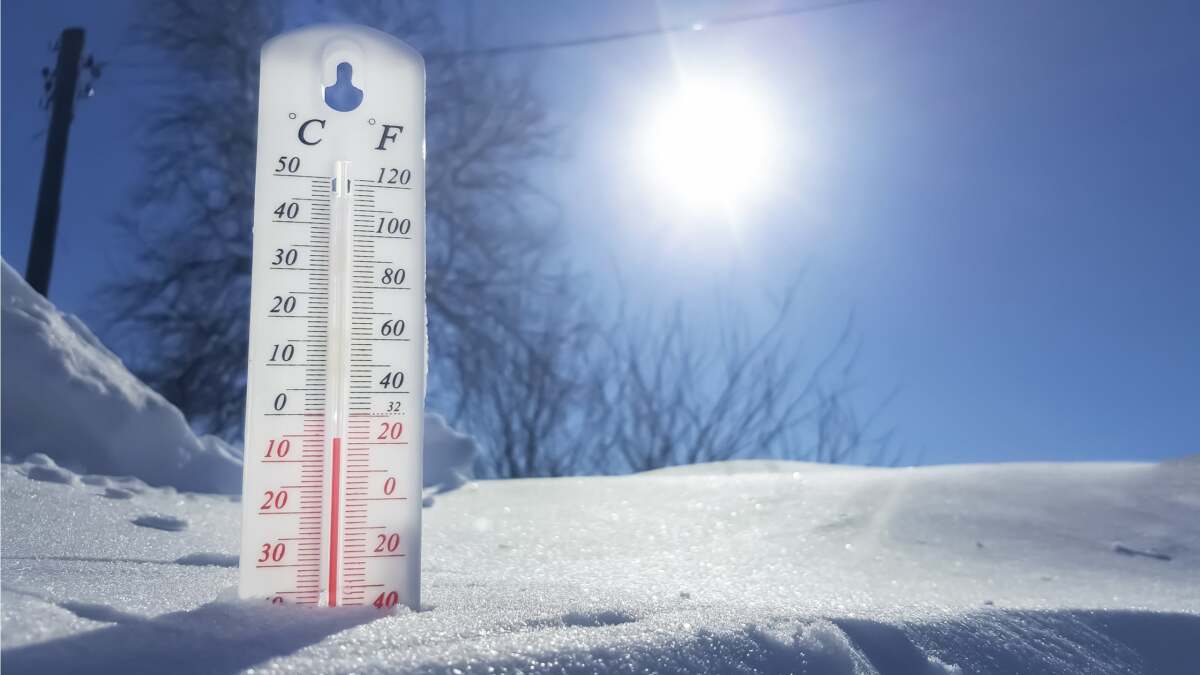
I consider myself pretty conversant in metric units. I know that 20 kilograms is 44 pounds (double it and add 10%) and that five kilometers is a little over three miles (I’ve, uh, run a lot of 5Ks). But Celsius temperatures are trickier. Instead of memorizing a one-step formula, try these three tricks—two of which require zero math.
Why it’s so annoying to convert between Fahrenheit and Celsius
Not only are Celsius and Fahrenheit degrees different sizes (each Celsius degree covers more of the scale), they have different baselines because Celsius is calibrated to the properties of water, and Fahrenheit is calibrated to the comfort of humans:
-
Zero degrees Celsius is the freezing point of water. (It’s 32 degrees Fahrenheit.)
-
100 degrees Celsius is the boiling point of water. (It’s 212 degrees Fahrenheit.)
-
Zero degrees Fahrenheit, as a weather forecast, is bitterly cold. (-18 degrees Celsius.)
-
100 degrees Fahrenheit, as a weather forecast, is sweltering hot. (38 degrees Celsius.)
With other measurement scales, like pounds versus kilograms, the baseline is the same: zero pounds is equivalent to zero kilos. So you just need to multiply or divide (by 2.2, in this case) to convert one to the other.
For temperature, though, you need to account for the different units and the different baseline. So it’s a two-step process: you need to multiply and add (or subtract and divide). Here are the official formulas:
To convert Celsius to Fahrenheit:
(degrees in celsius * 1.8) + 32
To convert Fahrenheit to Celsius:
(degrees in Fahrenheight – 32) * 0.55
If it helps, 1.8 is equivalent to 9/5, and .55 is 5/9. I used the decimals here because we all carry calculators now. In any case, there are easier ways to do this in your head than memorizing formulas! I’ll give you three options, in order from least math to most.
Memorize this poem to convert Celsius to Fahrenheit without any math
Still too much math? Try memorizing this poem:
30 is hot, 20 is nice, 10 is chilly, and zero is ice.
Those numbers correspond to 86, 68, 50, and 32 degrees Fahrenheit, respectively, but you don’t need to know that. If the forecast is around 10 degrees, you need a light jacket. If it’s over 30, that’s beach weather. And a fun bonus fact, in case you’re ever vacationing in the Arctic: -40 is -40 in both scales.
How to convert Celsius to Fahrenheit by just remembering four numbers
The poem above will get you in the right ballpark, but if you prefer numbers to words, here’s a cute trick that relies on the symmetry between some of the numbers on the thermometer.
Here’s the trick: You reverse the digits of these specific numbers.
-
04 degrees Celsius is 40 degrees Fahrenheit (chilly!)
-
16 degrees Celsius is 61 degrees Fahrenheit (hoodie weather)
-
28 degrees Celsius is 82 degrees Fahrenheit (balmy!)
-
40 degrees Celsius is 104 degrees Fahrenheit (stay inside and crank up the A/C)
You can even use this conversion both ways, if you remember which one is which. The Celsius degrees are always the smaller number of the pair, so 61 Fahrenheit is 16 Celsius. And by the way: The numbers are all 12 apart. (4 + 12 = 16, 16 + 12 = 28, etc.)
The only weird one here is 40, but now that you’ve read it, you get the idea. Four degrees Celsius is 40 Fahrenheit, and 40 Celsius is 104 Fahrenheit. So if you’re on vacation and you hear it’s going to be 32 today, you know that that’s more than 28 (82 Fahrenheit) but thankfully below 40 Celsius (104 F). It’s tank top and shorts weather.
How to estimate a Celsius to Fahrenheit conversion for any temperature, with only a little math
If you want a formula that works for any temperature, but that is still easier than the original formula, we can replace the 1.8 or 0.55 with a simple halving or doubling. That means our approximate formulas are:
20 Celsius is now 40 + 32 = 72 (actual answer: 68). And to do it the other way around: 72 Fahrenheit is 40/2, which is 20 Celsius. You can even use 30 instead of 32, if that lets you do the math quicker—the answer will still be close enough.

Comentarios recientes